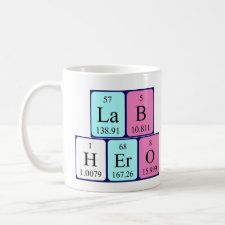
Authors: Yang LF, Hu XL, Guan P, Li J, Wu DF, Gao B
Article Title: Molecularly imprinted polymers for the selective recognition of l-phenylalanine based on 1-buty-3-methylimidazolium ionic liquid.
Publication date: 2015
Journal: Journal of Applied Polymer Science
Volume: 132
Issue: (36)
Page numbers: ArticleNo42485.
DOI: 10.1002/app.42485
Abstract: To enhance the affinity of 4-vinyl pyridine to l-phenylalanine (l-Phe) and convert the imprinting process from the aqueous phase to the organic phase, an oil-soluble amino acid ionic liquid was introduced as a template. In this study, 1-butyl-3-methylimidazolium α-aminohydrocinnamic acid salt was first applied to prepared surface molecularly imprinted polymers (MIPs) in acetonitrile for the selective recognition of l-Phe. Fluorescence quenching analysis of the functional monomer on the template was investigated under different conditions to study the imprinting mechanism. Several binding studies, such as the sorption kinetics, sorption thermodynamics, and solid-phase extraction application, and the chiral resolution of racemic phenylalanine were investigated. The binding isotherms were fitted by nonlinear regression to the Freundlich model to investigate the recognition mechanism. The affinity distribution analysis revealed that polymers imprinted by ionic liquid showed higher homogeneous binding sites than those imprinted by l-Phe. The competition tests were conducted by a molecularly imprinting solid-phase extraction procedure to estimate the selective separation properties of the MIPs for l-Phe. The target MIP was shown to be successfully for the separation of l-Phe from an amino acid mixture. © 2015 Wiley Periodicals, Inc. J. Appl. Polym. Sci. 2015, 132, 42485
Template and target information: l-phenylalanine, l-Phe
Author keywords: adsorption, functionalization of polymers, Ionic Liquids, kinetics, molecular recognition



Join the Society for Molecular Imprinting

New items RSS feed
Sign-up for e-mail updates:
Choose between receiving an occasional newsletter or more frequent e-mail alerts.
Click here to go to the sign-up page.
Is your name elemental or peptidic? Enter your name and find out by clicking either of the buttons below!
Other products you may like:
 MIPdatabase
MIPdatabase









